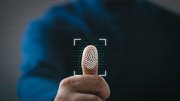Article
Touchscreen voting loses in Florida
Mixed tests of controversial machines no relief for kiosk balloting.

March 5, 2007
The future of touchscreen voting technology is maybe gone as fast as it came inFlorida Florida governor Charlie Crist made an announcement on February 1 that he plans to abandon touchscreen voting kiosks in time for the 2008 presidential election.
His plan is to replace the touchscreens with optical scanning machines that produce a paper trail of voters' decisions, although according to Kathy Dent, Supervisor of Elections forSarasotaCounty , the proposed law would leave the door open for the use of touchscreens during early voting and for those with disabilities. The proposal will be discussed when theFlorida legislative session resumes in May.
The estimated cost of replacing the machines is more than $32 million and according to some voting officials, may take up to three years to complete.
Crist's decision may have been sparked by a massive undervote in the 2006 13th District Congressional Election inSarasota County ,Florida . During the close race, in which Republican Vern Buchanan defeated Democrat Christine Jennings, more than 18,000 votes were not recorded. Buchanan's margin of victory? Only 369 votes.
An undervote is where a ballot is processed, but a voter does not vote in a certain race. In this case, 18,000 people who voted on November 4, 2006 did not mark either candidate in the District Congressional race.
Several lawsuits ensued, but on February 23 an audit report was released by theFlorida Secretary of State andFloridaStateUniversity that the touchscreen voting machines, manufactured by Election Services and Software, correctly captured the voters' selections. The report also found no error in the procedures of the Sarasota County Elections Office during the election.
"It could have been the ballot design, voter intent or voter error," said Kathy Dent, Supervisor of Elections. With the touchscreen machines off the hook, the reason for the undervote still remains a mystery.
The People for the American Way Foundation have already countered the State Audit Report, saying that it was a whitewash and the result of a flawed process overseen by people with a stake in the outcome.
"Something went terribly wrong inSarasotaCounty last November − and voters have provided credible evidence that widespread voting machine malfunctions were part of the problem," said Ralph G. Neas, president of the People for the American Way Foundation. "When 18,000 votes inexplicably disappear, you can't just pretend nothing went wrong."
The PFAW Foundation article said the audit tested just ten voting machines − only five of which were used on Election Day. Approximately 1,500 iVotronic machines were deployed in Sarasota County.
Previous to the release of theStateReportSarasotaCounty passed a county charter amendment to switch to optical scanning machines, after 55 percent of voters said they would prefer paper ballots.
Dent said she has defended touchscreen voting all along, but has to do what the voters want. "[The optical scanners] are a step backward in technology," she said, "but we have to maintain voter confidence."
The iVotronic machines used in theSarasotaCounty election were supplied by Election Systems and Software, based inOmaha ,Neb.
"The Report just confirms our position all along, that our voting machines are very accurate," said Amanda Brown, spokesperson for ES&S.
Diebold, one of the largest voting machine manufacturers in theUS , did not supply machines toSarasotaCounty but did have machines in 31Florida counties during the 2006 election.
"There has been a lot of criticism of touchscreens, mainly because of a lack of familiarity with the users," said David Bear, spokesman for Diebold Election Services. "But they've proven to be extremely accurate and lessen the likelihood of unintentional voting.
The plans of the Florida government have already become actions in Washington D.C. Rep. Rush Holt (Dem.-New Jersey) is making a second attempt to pass a bill through the House of Representatives that will amend the Help America Vote Act of 2002. If approved, the Voter Confidence and Increased Accessibility Act of 2007 will mandate the use of paper trials for all voting machines, as well as provide better accessibility to voting terminals for handicapped voters.
Related Media
SoftwarePresented ByPROVISIO LLC
Presented ByPROVISIO LLC
 ChatGPT
ChatGPT Grok
Grok Perplexity
Perplexity Claude
Claude









